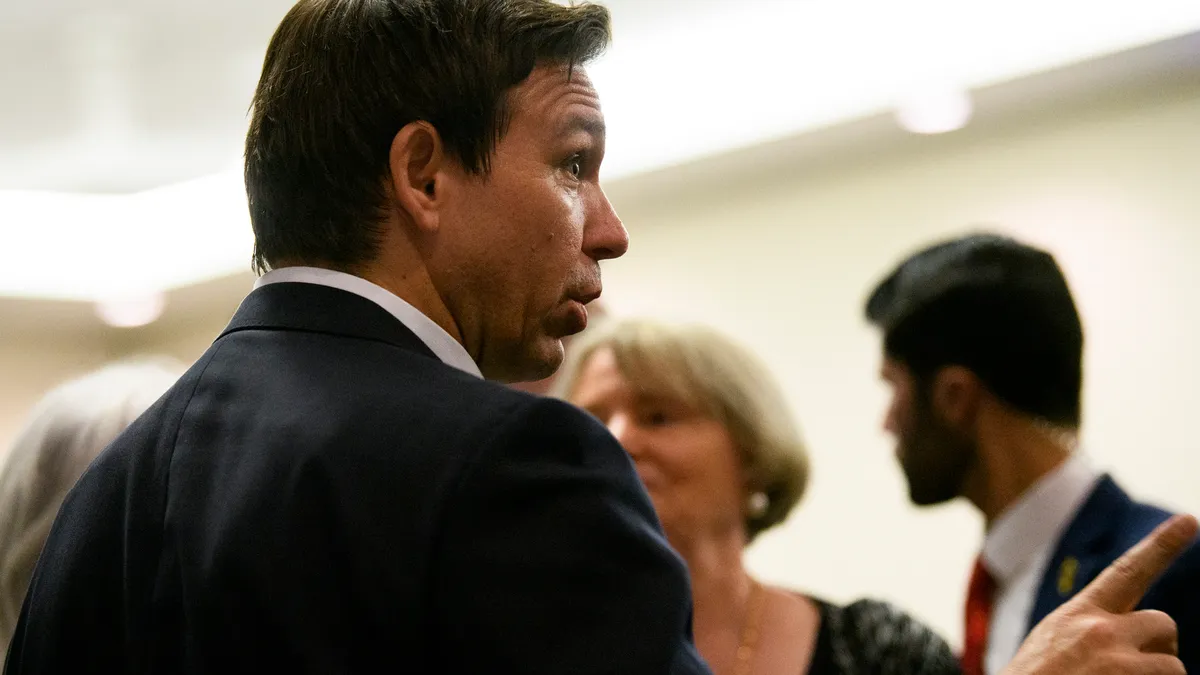Discourse about the funky rollout seems to have overshadowed the actual presidential bid announcement made by Gov. Ron DeSantis, R-Fla., on Wednesday night. The start of a highly anticipated challenge to former President Donald Trump and incumbent President Joe Biden marks another era of potential problems — yet again, over the past few years — that demands agility from HR. Amid the ever-changing work landscape, an age-old question endures: Is it OK to talk about politics at work?
The short answer is “yes.” The long answer: Political discussions probably need to be mediated, if not curbed completely. TL;DR: Attorneys have told HR Dive that employers can underscore that the workplace is not the best place to hold a philosophical salon. But if HR is going to crack down, per Title VII of the Civil Rights Act, it needs to do so evenly.
In turn, one Society for Human Resource Management executive presented an alternative: Allow political talk with the encouragement of goodwill, as well as concrete anti-bias training.
Political polarization at work is not a new problem; about a third of respondents in a 2019 SHRM survey deemed their workplaces exclusive to individuals with differing political views, with more than half noting that workplace political talk had become more common over the previous four years.
Data shows the simmering political anger and malaise that existed before the pandemic continues. Last year, SHRM reported that about 1 in 5 respondents in their survey could point to poor treatment in the workplace due to their political views. More specifically, 1 in 5 HR professionals surveyed said that there had been more political “volatility” at work since 2019. Many workers in an Insight Global survey from October said they opted to completely abstain from political discourse during midterm season, due to fears it could ignite on-the-job tension.
As the U.S. political climate continues to blaze incendiary, here are some best practices regarding talk around the 2024 presidential election — the lead-up to which could cause one of the most significant bias issues of the year, a DEI tech exec told HR Dive.












